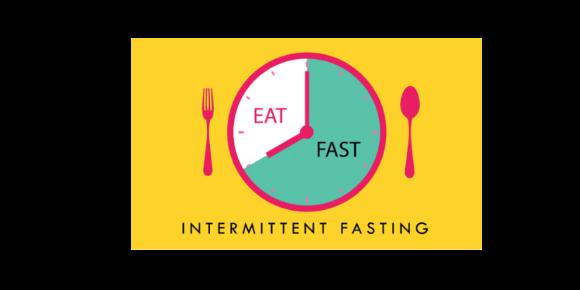Location
Intermittent Fasting: Is it good for you or not?

- posted: Mar. 27, 2024
Unlocking the Secrets of Intermittent Fasting: How It Transforms Your Body
In a world where dietary trends come and go, intermittent fasting (IF) has stood the test of time, emerging as more than just a fad but a lifestyle choice backed by science. But what exactly is intermittent fasting, and how does it affect the body?
What is Intermittent Fasting?
Intermittent fasting is not a diet per se but rather an eating pattern that cycles between periods of eating and fasting. Unlike traditional diets that focus on what you eat, intermittent fasting focuses on when you eat. There are several different methods of intermittent fasting, but the most common ones include:
16/8 Method: This method involves fasting for 16 hours each day and restricting your daily eating window to 8 hours.
5:2 Diet: With this approach, you eat normally for five days of the week and restrict your calorie intake to 500-600 calories on the remaining two non-consecutive days.
Eat-Stop-Eat: In this method, you fast for a full 24 hours once or twice a week.
Alternate-Day Fasting: This method involves alternating between fasting days, where you consume minimal calories, and feast days, where you eat normally.
How Does Intermittent Fasting Affect the Body?
Intermittent fasting triggers a cascade of physiological changes in the body that can have profound effects on your health and well-being. Here's a closer look at some of the key ways intermittent fasting impacts the body:
Weight Loss: One of the primary reasons people turn to intermittent fasting is for weight loss. By restricting the window of time in which you eat, you naturally consume fewer calories, leading to weight loss over time. Additionally, intermittent fasting can increase your metabolic rate, promote fat burning, and reduce levels of insulin, a hormone that regulates blood sugar and fat storage.
Improved Insulin Sensitivity: Intermittent fasting has been shown to improve insulin sensitivity, which is crucial for maintaining stable blood sugar levels. By reducing insulin resistance, intermittent fasting may lower your risk of type 2 diabetes and metabolic syndrome.
Cellular Repair and Autophagy: During fasting periods, your body goes into a state of autophagy, a process in which cells remove damaged components and recycle them for energy. This cellular clean-up may help protect against age-related diseases and promote longevity.
Brain Health: Intermittent fasting has been linked to various brain benefits, including improved cognitive function, enhanced brain plasticity, and a reduced risk of neurodegenerative diseases like Alzheimer's and Parkinson's disease. Fasting may also increase the production of brain-derived neurotrophic factor (BDNF), a protein that supports the growth and survival of nerve cells.
Heart Health: Several studies suggest that intermittent fasting may have a positive impact on heart health by reducing risk factors such as high blood pressure, cholesterol levels, triglycerides, and inflammation. These effects may help lower the risk of heart disease and stroke.
Is Intermittent Fasting Right for Everyone?
While intermittent fasting offers numerous health benefits, it's not suitable for everyone. Pregnant or breastfeeding women, individuals with a history of eating disorders, and those with certain medical conditions should avoid intermittent fasting or consult with a healthcare professional before trying it.
Recent research has suggested a potential link between intermittent fasting and an increased risk of cardiovascular disease (CVD), particularly in individuals with pre-existing risk factors such as obesity or insulin resistance. While some studies have shown potential benefits for heart health, including improvements in blood pressure and cholesterol levels, other research has raised concerns about adverse effects such as increased LDL cholesterol levels and markers of inflammation. However, it's crucial to recognize the limitations of observational studies and the variability of intermittent fasting effects depending on individual factors. Consulting with a healthcare professional before starting intermittent fasting, especially for those with existing health conditions, is advisable, and individuals should prioritize a balanced approach to health that includes regular physical activity, a balanced diet, stress management, and adequate sleep.
Additionally, intermittent fasting may not be sustainable or appropriate for everyone's lifestyle. It's essential to listen to your body and choose an eating pattern that works best for you.
In Conclusion
In regards to intermittent fasting having a correlation to increasing CVD, Intermittent fasting does not allow us to just eat whatever foods we like just because we are fasting. We still need to eat a balanced diet with a wide range of healthy proteins, fats and carbohydrates. Intermittent fasting is more than just a passing trend—it's a lifestyle choice that can positively impact your health and well-being. By incorporating periods of fasting into your routine, you may experience weight loss, improved metabolic health, enhanced brain function, and a reduced risk of chronic diseases. However, it's essential to approach intermittent fasting mindfully and tailor it to your individual needs and preferences.
Are you ready to unlock the secrets of intermittent fasting and transform your body from the inside out? Give it a try and experience the remarkable benefits for yourself!

- posted: Mar. 27, 2024
Unlocking the Secrets of Intermittent Fasting: How It Transforms Your Body
In a world where dietary trends come and go, intermittent fasting (IF) has stood the test of time, emerging as more than just a fad but a lifestyle choice backed by science. But what exactly is intermittent fasting, and how does it affect the body?
What is Intermittent Fasting?
Intermittent fasting is not a diet per se but rather an eating pattern that cycles between periods of eating and fasting. Unlike traditional diets that focus on what you eat, intermittent fasting focuses on when you eat. There are several different methods of intermittent fasting, but the most common ones include:
16/8 Method: This method involves fasting for 16 hours each day and restricting your daily eating window to 8 hours.
5:2 Diet: With this approach, you eat normally for five days of the week and restrict your calorie intake to 500-600 calories on the remaining two non-consecutive days.
Eat-Stop-Eat: In this method, you fast for a full 24 hours once or twice a week.
Alternate-Day Fasting: This method involves alternating between fasting days, where you consume minimal calories, and feast days, where you eat normally.
How Does Intermittent Fasting Affect the Body?
Intermittent fasting triggers a cascade of physiological changes in the body that can have profound effects on your health and well-being. Here's a closer look at some of the key ways intermittent fasting impacts the body:
Weight Loss: One of the primary reasons people turn to intermittent fasting is for weight loss. By restricting the window of time in which you eat, you naturally consume fewer calories, leading to weight loss over time. Additionally, intermittent fasting can increase your metabolic rate, promote fat burning, and reduce levels of insulin, a hormone that regulates blood sugar and fat storage.
Improved Insulin Sensitivity: Intermittent fasting has been shown to improve insulin sensitivity, which is crucial for maintaining stable blood sugar levels. By reducing insulin resistance, intermittent fasting may lower your risk of type 2 diabetes and metabolic syndrome.
Cellular Repair and Autophagy: During fasting periods, your body goes into a state of autophagy, a process in which cells remove damaged components and recycle them for energy. This cellular clean-up may help protect against age-related diseases and promote longevity.
Brain Health: Intermittent fasting has been linked to various brain benefits, including improved cognitive function, enhanced brain plasticity, and a reduced risk of neurodegenerative diseases like Alzheimer's and Parkinson's disease. Fasting may also increase the production of brain-derived neurotrophic factor (BDNF), a protein that supports the growth and survival of nerve cells.
Heart Health: Several studies suggest that intermittent fasting may have a positive impact on heart health by reducing risk factors such as high blood pressure, cholesterol levels, triglycerides, and inflammation. These effects may help lower the risk of heart disease and stroke.
Is Intermittent Fasting Right for Everyone?
While intermittent fasting offers numerous health benefits, it's not suitable for everyone. Pregnant or breastfeeding women, individuals with a history of eating disorders, and those with certain medical conditions should avoid intermittent fasting or consult with a healthcare professional before trying it.
Recent research has suggested a potential link between intermittent fasting and an increased risk of cardiovascular disease (CVD), particularly in individuals with pre-existing risk factors such as obesity or insulin resistance. While some studies have shown potential benefits for heart health, including improvements in blood pressure and cholesterol levels, other research has raised concerns about adverse effects such as increased LDL cholesterol levels and markers of inflammation. However, it's crucial to recognize the limitations of observational studies and the variability of intermittent fasting effects depending on individual factors. Consulting with a healthcare professional before starting intermittent fasting, especially for those with existing health conditions, is advisable, and individuals should prioritize a balanced approach to health that includes regular physical activity, a balanced diet, stress management, and adequate sleep.
Additionally, intermittent fasting may not be sustainable or appropriate for everyone's lifestyle. It's essential to listen to your body and choose an eating pattern that works best for you.
In Conclusion
In regards to intermittent fasting having a correlation to increasing CVD, Intermittent fasting does not allow us to just eat whatever foods we like just because we are fasting. We still need to eat a balanced diet with a wide range of healthy proteins, fats and carbohydrates. Intermittent fasting is more than just a passing trend—it's a lifestyle choice that can positively impact your health and well-being. By incorporating periods of fasting into your routine, you may experience weight loss, improved metabolic health, enhanced brain function, and a reduced risk of chronic diseases. However, it's essential to approach intermittent fasting mindfully and tailor it to your individual needs and preferences.
Are you ready to unlock the secrets of intermittent fasting and transform your body from the inside out? Give it a try and experience the remarkable benefits for yourself!
Office Hours
Nutley Hours
Monday
Closed
Tuesday
9:00 am - 6:30 pm
Wednesday
Closed
Thursday
9:00 am - 6:30 pm
Friday
Closed
Saturday
Closed
Sunday
Closed
Fairfield Hours
Monday
10:00 am - 7:00 pm
Tuesday
Closed
Wednesday
10:00 am - 7:00 pm
Thursday
Closed
Friday
9:00 am - 4:00 pm
Saturday
Closed
Sunday
Closed
